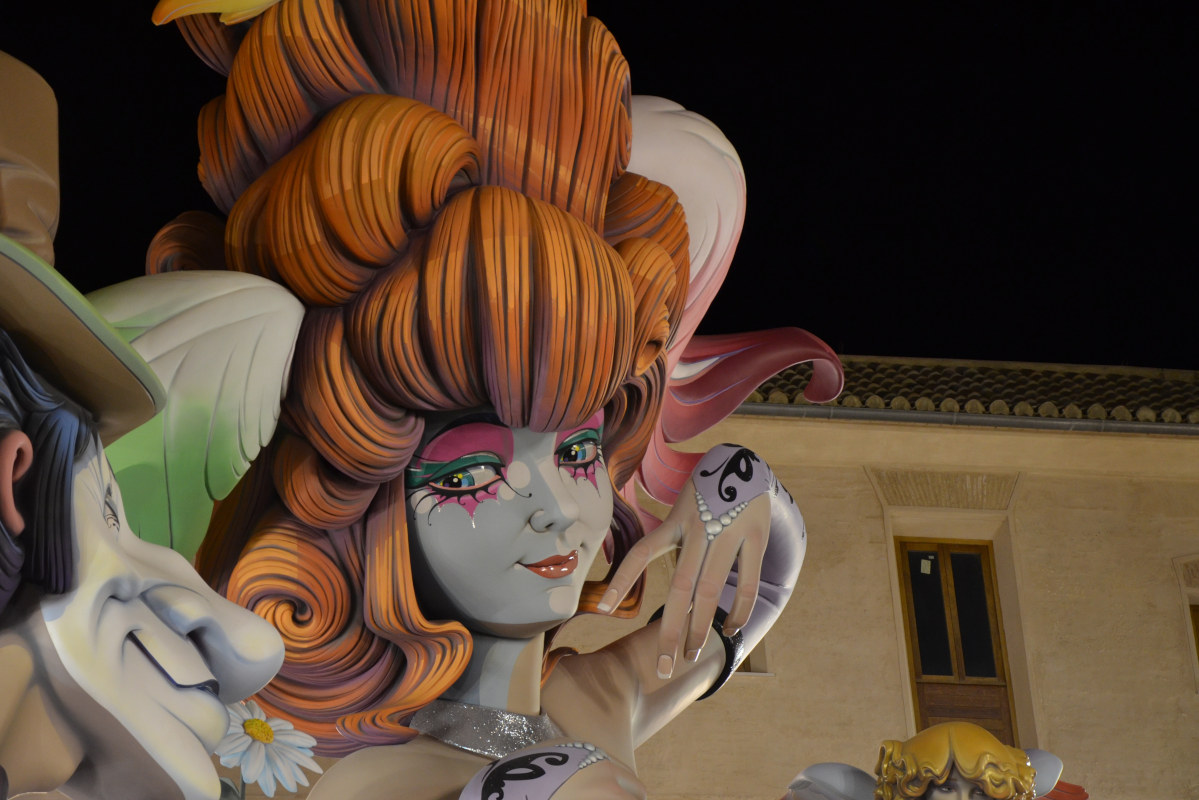Films & Books – May 2019
Text by Anna Bonet & Claire Webb

Our monthly pick of the best films and books either from Southern Europe or featuring Southern European locations.
Films
From start to finish, Diamantino is enormously fun. A Portuguese comedy-drama, co-directed by Gabriel Abrantes and Daniel Schmidt, we follow a Cristiano Ronaldo-like figure who, with one missed penalty kick in a World Cup final, falls from football god to national laughing stock within moments of the film’s opening. What will Diamantino do now?
It doesn’t help that his beloved father and agent dies just minutes after Diamantino loses Portugal the World Cup Champions title. Now he must be managed by his twin sisters who are so evil they’re almost caricatures. Trying to fill a gaping hole in his life, Diamantino decides to adopt a Mozambican refugee: a young boy onto whom he can project the loving relationship he once had with his father.
Played with perfection by Carloto Cotta, Diamantino is child-like, innocent, and so naive, that he doesn’t realise he’s being duped and used from all angles. First, there’s the glaring issue that his adopted son is not a young refugee boy at all, but actually a fully grown and female secret-service agent (Cleo Tavares), investigating the money-laundering operation of the footballer’s twin sisters.
Meanwhile, the sisters are capitalising on more than their brother’s money – they utilise his fame (and stupidity) to trick him into participating in an anti-EU, ‘Make Portugal Great Again’ campaign.
Yes, there’s a lot at play here. And what with Diamantino’s memories of missing the goal being punctuated by candy-floss coloured clouds, crashing waves and oversized puppies, it could well be one of the most bizarre films you’ll see this year.
But this weird, wacky, tender 90 minutes is satirical entertainment at its very best. Bursting with ideas, it manages to send up everything from celebrity culture, to political ideology of all kinds, whether it be the far right or faux liberals. Essentially, Diamantino takes a mocking look at the madness of the modern world.
The cast is brilliant, particularly Cotta, who makes the best loveable idiot seen on screen in a while, as well as Tavares, who executes his double role with admirable skill. Add into the mix the unusual, digressive storytelling, the way the plot spools in all sorts of directions you don’t expect, the lightness of touch from directors Abrantes and Schmidt, and the crazy, colourful visuals, and the result is utterly enchanting.
Diamantino is in cinemas across the UK from 10 May.

Diamantino
Books
20years after her chocolate shop first enchanted millions, Vianne Rocher is back. Joanne Harris’ latest novel continues the story of her bestseller Chocolat, which has been translated into over 50 languages and, in 2000, was turned into a sumptuous, Oscar-nominated film starring Juliette Binoche and Johnny Depp.
The Strawberry Thief is her fourth novel featuring Vianne, a chocolatière in Lansquenet-sous-Tannes, a sleepy village in France’s rural south-west where everybody knows everybody. She’s no ordinary confectioner: her simmering pots spell out omens and bewitch more than just the taste buds, and her youngest daughter Rosette has inherited her mystic powers. Harris, who’s half-French and lives in Yorkshire, has conjured up a timeless French village where folklore and superstition still holds sway.
Five years have passed since the last book: Vianne has finally settled down and is friends with her old adversary Father Reynaud, who is tormented by an old secret. Their tranquil lives are turned upside down when the village’s curmudgeonly florist dies and leaves a patch of land – an oak wood where wild strawberries flourish – to her youngest daughter Rosette, and a written confession to the priest. No one is more surprised than the florist’s haughty daughter, who’s determined to claw her inheritance back. As for Vianne, she’s more troubled by a bewitching stranger who sets up shop opposite.
Harris’ writing is deliciously evocative, and as irresistible as her heroine’s wares. You can almost smell the spices that waft from her copper pan, and taste her dainty chocolate mendiants sprinkled with sour cherries. It’s little wonder that several villages in south-west France claim to be the inspiration for teeny Lansquenet-sous-Tannes, with its cobbled streets and disused tanneries on the river. Although Harris has never revealed the town she based it on, she has said that it’s in Gers, a department of lush pastures and rolling hills in the heart of sun-drenched Gascony, west of Toulouse. Dotted with characterful villages and medieval fortified towns, it’s famous for its rich farmhouse cooking and foie gras.
For all the modern references, The Strawberry Thief is nostalgic for a simpler time, where gossip happens over a glass of wine in the village café or a steaming cup of Vianne’s ‘chocolat chaud’. And yet, Lansquenet-sous-Tannes is no idyll. Its residents are scarred by the past, and being different in any way – like free-spirited Rosette – is pitied and feared by the sanctimonious church-going brigade.
Fans will enjoy little nods to the villagers’ tangled backstories, but there’s no need to have read Chocolat or the other Lansquenet books to enjoy this one. It’s easy to devour, with enough edge to make it satisfying. A word of warning, though: Harris’ gorgeous descriptions of Vianne at work may make you crave a beautifully packaged box of handmade French chocolates.
The Strawberry Thief by Joanne Harris is published by Orion (£20).

Kyte Photography
Subscribe to Our Newsletter
Receive our monthly newsletter by email





